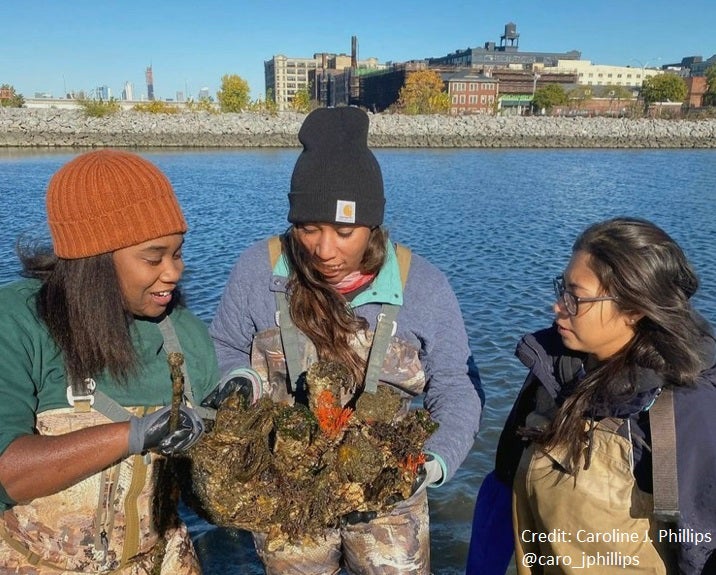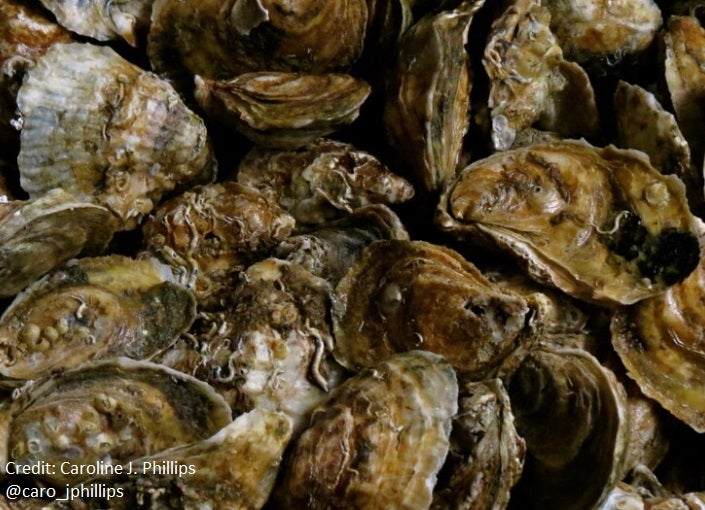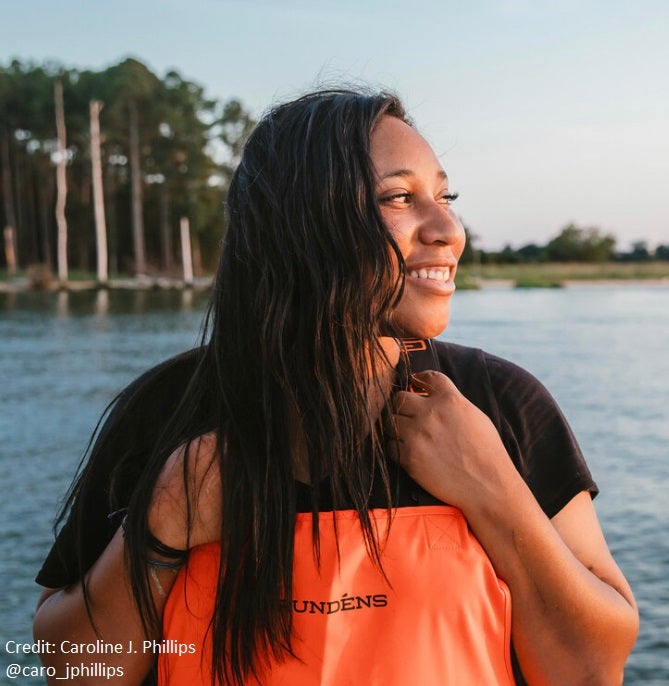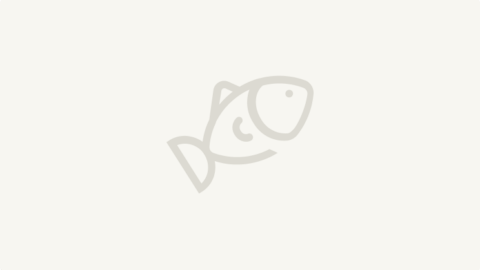Inclusivity & Aquaculture: An interview with Imani Black
A sustainable aquaculture industry in the United States has the potential to provide both environmental and economic benefits — and EDF is committed to supporting legislation that prioritizes strong regulations while supporting the industry’s efforts to make sure those benefits are felt broadly. That’s why EDF connected with Imani Black, founder of Minorities in Aquaculture, or MIA, to understand how we can foster more diversity and inclusivity in the traditionally white, male aquaculture industry. Read our conversation below to learn why Imani founded MIA, her prescriptions for a growing industry and why she believes the work she loves can give everyone an equal opportunity to thrive.
Can you tell us about your aquaculture career and how it began?
My aquaculture career started when I was first introduced to the industry through the Oyster Aquaculture Training, or OAT, program internship at Virginia Institute of Marine Science. OAT is a six-month training program that covers all parts of the shellfish aquaculture industry, including hatchery, nursery, farm and research. I learned so much there, and I learned to really love the work we were getting exposed to. Luckily, there is an externship aspect to OAT as well — which is where you go to different farms and work with them for a week or so to learn from others in the area or your area of interest. After completing one of my externships, I was offered a job once I completed the program and that was my first real job in shellfish aquaculture.
What steps should the U.S. take to ensure the aquaculture industry grows equitably and inclusively?
I think some of the key ways that we can push Diversity, Equity and Inclusion, or DEI, forward in aquaculture is through educating about the industry, exposing underrepresented communities to the importance and opportunities of aquaculture, and investing in resources for people of color. People within the aquaculture industry understand why we are so passionate and what sustainable aquaculture provides us, but folks outside the industry don’t have that same knowledge. If we can help people understand what’s actually going on in aquaculture, we can show them how intertwined they really are with the industry and with fisheries in general.
However, education and exposure are only the beginning steps — investing in the resources that will attract different communities is really the key in my opinion. Not only should we be developing opportunities for people to build a career in aquaculture, but we also have to consider the variety of barriers — financial, cultural and ethical — that prevent people of color from entering the industry and science fields in general, and we must build and reshape our efforts so these opportunities are truly effective and impactful.
Not only should we be developing opportunities for people to build a career in aquaculture, but we also have to consider the variety of barriers — financial, cultural and ethical — that prevent people of color from entering the industry and science fields in general, and we must build and reshape our efforts so these opportunities are truly effective and impactful.
There are very few Black women in the aquaculture industry. Have you encountered any challenges being one of the few?
Of course, but even though there are few black women in aquaculture, I think women in general face a lot of challenges in the industry no matter what race or background because there are so few of us. Many sectors of aquaculture are prominently operated by men — specifically white men — and so it’s hard at times to navigate through those “boy clubs” that tend to form when leadership positions are all-male. Women are not always seen as strong or capable of doing the more physical and labor-intensive jobs in aquaculture, which it’s absolutely ridiculous. In my experience, I played Division I lacrosse, so I am no stranger to putting my body through hard work, heavy lifting or anything like that. Throughout my career, even when I was in a leadership role, I still had to prove every day that I could keep up and battle through the misogyny that I was often faced with. Women are powerful in so many ways and adding aquaculture to that list will only keep proving that point.
What drove you to start Minorities in Aquaculture?
There were a number of different catalysts that really pushed me to start MIA. I think, overall, I was pretty frustrated about where my aquaculture was going and about some of the not-so-great things I was experiencing at my job. At that time, I had never seen another black woman ever in my workspace or had ever met another woman of color in a leadership role. All that, combined with the heightened conversation of diversity and inclusion, inspired me to take a chance and jump into the unknown to find other women of color in aquaculture and to create a community where we felt seen, heard, empowered and supported as we moved through racism and other hardships in our careers. I couldn’t wait for people outside of the minority community to provide us with what we needed, so I decided to do it myself, whether I felt like I was ready to or not. There was no time to waste.
What do you tell women of color who are considering a career in aquaculture? What’s the most important lesson learned from your own experience?
Like I mentioned before, education and exposure are key pillars to getting more minorities in this space. For our MIA members — women of color — who may be just starting their careers or are interested in growing their careers, I encourage them to get as much experience as they can and to truly figure out what their passions are within the space. The great thing about aquaculture is that its capacity is consistently growing, and many different disciplines are shaping the future of our industry. I think that encouragement is derived from my understanding that finding what motivates you and what you love to do can and will take you a long way. When you have a clear vision of what you want to do in the future, no one can derail you from that passion — no matter how many times you hear discouragement.
Why are you so passionate about aquaculture?
I’ve always been super passionate about conservation and restoration since I was little. I’ve always understood the importance of caring about our environment and how we impact the ecological changes that we see. I think aquaculture fits right into that, and I truly value the many things that aquaculture provides for us and the impact it will have in the future. Along with that, I really like the physical parts of aquaculture. I don’t mind being covered in mud, working long days or any of the harder things involved in aquaculture. I won’t lie that, depending on the day, the mishaps you can experience aren’t always fun — but what other job gives you an on-the-water office? Aquaculture is in so many beautiful places, and, in my opinion, nothing will ever be able to beat that.













